Empowered by training, female garment workers in Dhaka gain confidence, promotions and better futures
Date:
Author: Syeda Samara Mortada
Dhaka, Bangladesh — Lata Banu could not finish school because her parents could not afford it. When her elder sister got married and moved to Dhaka, she went along and then joined Babylon Garments Limited as a quality control officer. But Ms. Banu had big dreams.
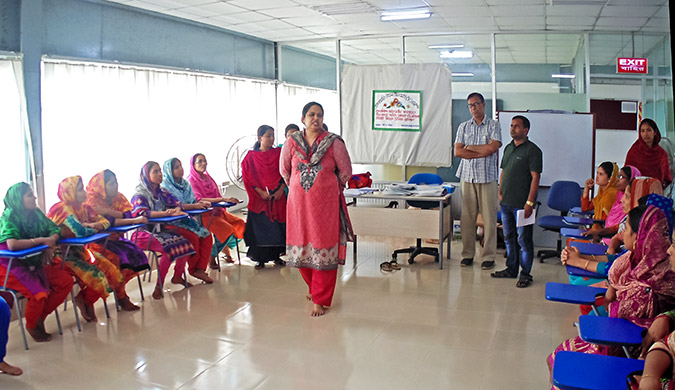
"Society looks down upon people who work in the ready-made garment industry, but I proved them wrong," she said. "I worked hard and got a promotion, and now I am the Quality Control Supervisor. Many times, people think girls can't do anything, but I did what I wanted, and excelled in it."
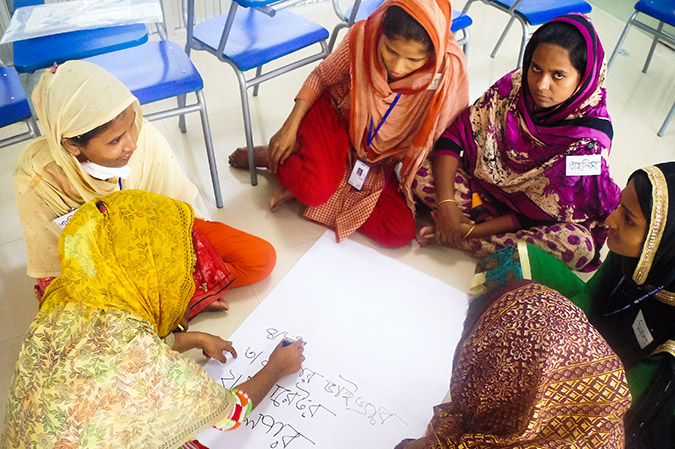
Ms. Banu's colleague at the factory, Halima Khatun, was also promoted to become a supervisor in the operations department.
"I always wanted to grow, I did not want to limit myself," she said. "I wanted to show that women can do everything that a man can do. I wanted to prove my talent, so I went out of my given responsibilities and worked further. Today, I am a supervisor."
The two young women can look forward to better lives thanks to their own resoluteness, and to a pilot project funded by Benetton Group, a global fashion brand. The project is carried out by UN Women and CARE at Babylon Garments Limited and another factory in the Dhaka area, MG Niche Stich Limited. The 10–month project ends 31 March.
The project was designed to help women get into positions of decision-making, not only at home and in the community but at the workplace as well. The two agencies have provided 200 workers with training to increase their productivity and soft skills such as communication, negotiation and leadership that will help their career advancement. Fifty workers who demonstrated leadership potential were chosen for training on advanced life skills including supervisory skills.
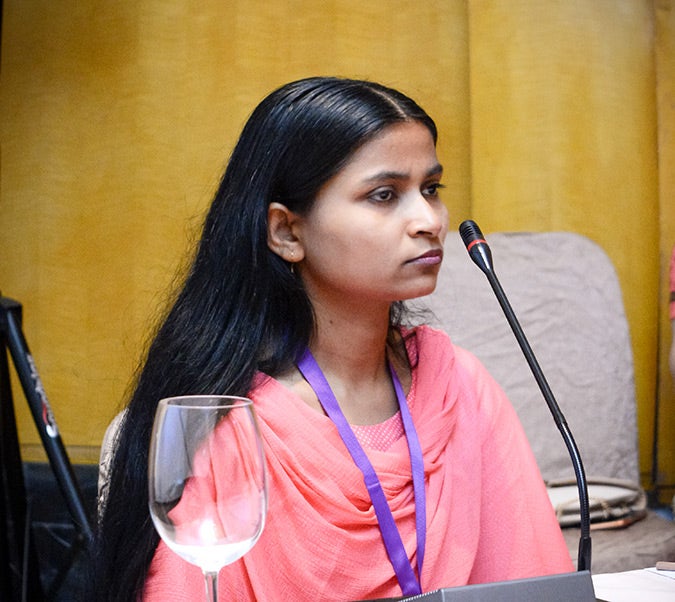
The project also helped reduce the harassment and violence the women face in the factories and the immediate public areas outside them through gender sensitization and awareness sessions for factory supervisors and managers and through making the workers better equipped in communication and negotiation skills, and better informed about their rights and able to explain their rights to others.
Ms. Banu said the training changed her life.
"I became self-assured after I took part in this training," she said. "I then got promoted because my supervisor appreciated my work. I don't want girls to be left behind; they need to move forward through self-courage, patience and hard work."
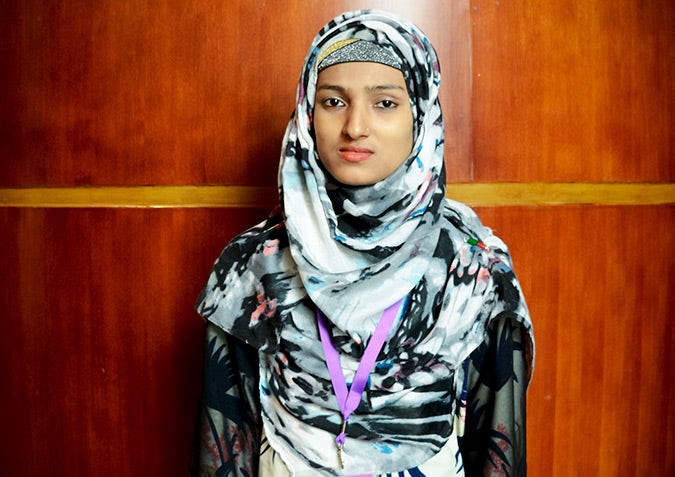
The workers gained confidence not only in their factory work, but also in pushing back against the norms and constraints of a male-dominated society so they can improve life for themselves and for their families.
Lipa Akhter 19, who works at MG Niche Stich Limited, stays with a relative who used to live in the same village as herself. She had come to work at the factory after her father fell ill. She earns about 5,000 taka (USD 60) a month and sends most of it back home after paying for rent and food.
"Earlier, boys in our neighborhood used to tease me when I was on the way to work," she said. "After receiving the training, I did not feel scared anymore. Instead, I got the confidence to stop them and tell them that what they are doing is wrong.
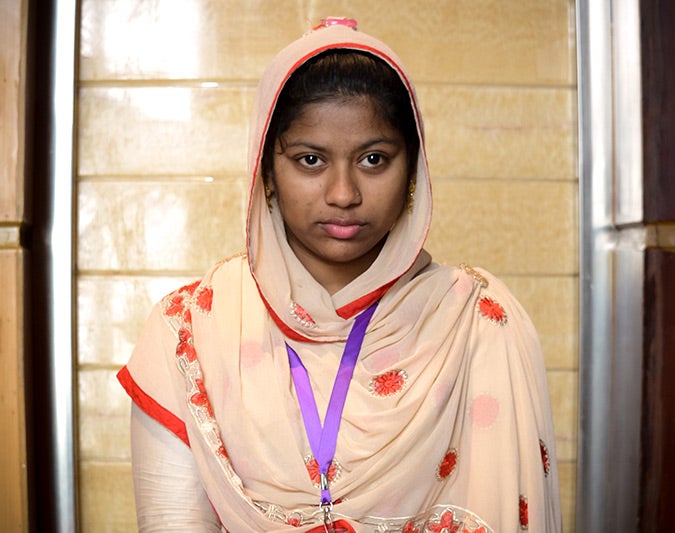
"I will start studying alongside my work from next year. I want to advance in my career and want to have a future for myself."
Fahima Akhter Sumaiya wakes up at 6 am every day. She cleans the house, cooks and heads out to work in the factory by 7:30 am. The 22–year-old and her brother support their parents, who are ill.
"Prior to the training we received, we didn't know how to communicate in public," she said. "We thought we were weak but now we feel we can achieve bigger things. From childhood, we were given the impression that girls are a burden to their families. Now we feel we can move forward and accomplish anything we desire."
For more information:
Please contact: Syeda Samara Mortada
Communications Analyst, UN Women Bangladesh
Mobile: 0161 182 8015
Email: [ Click to reveal ]